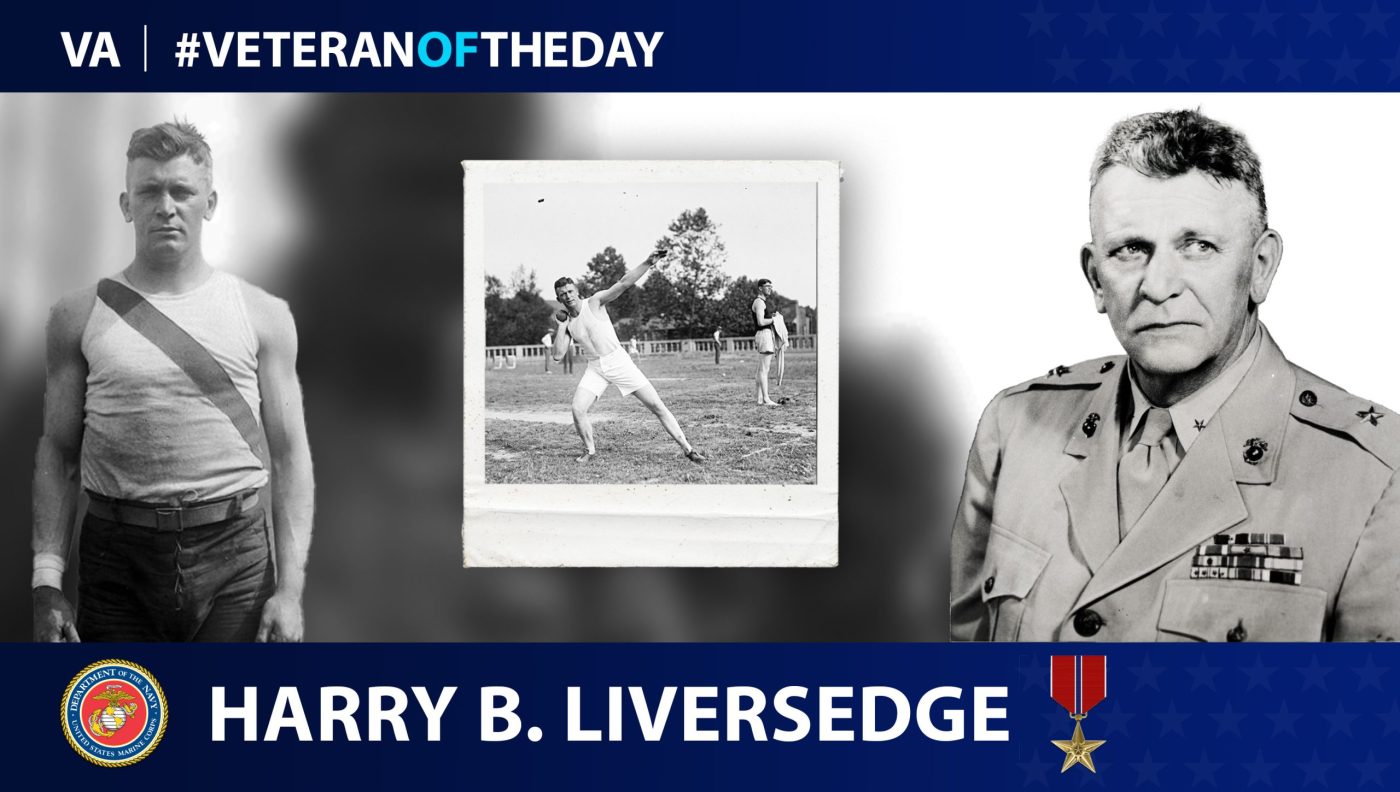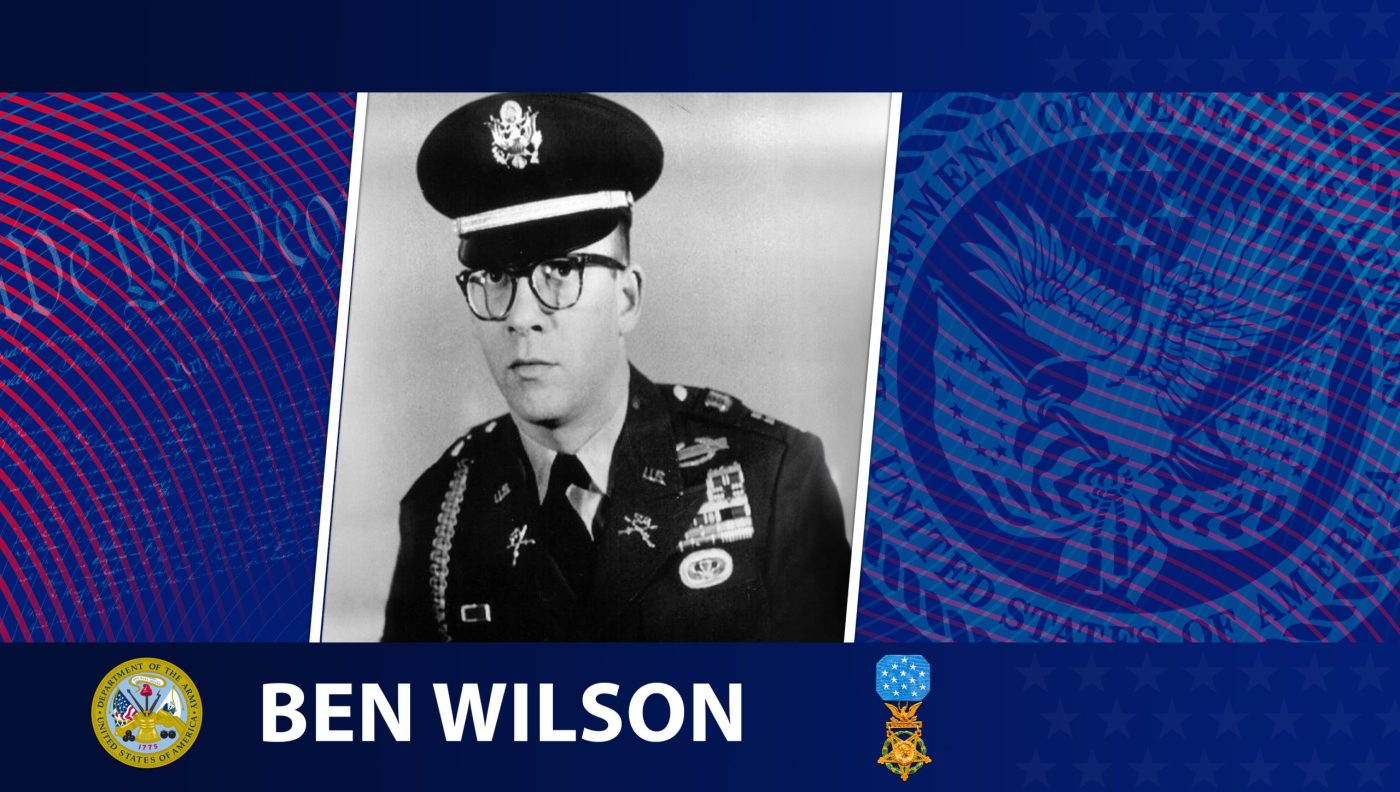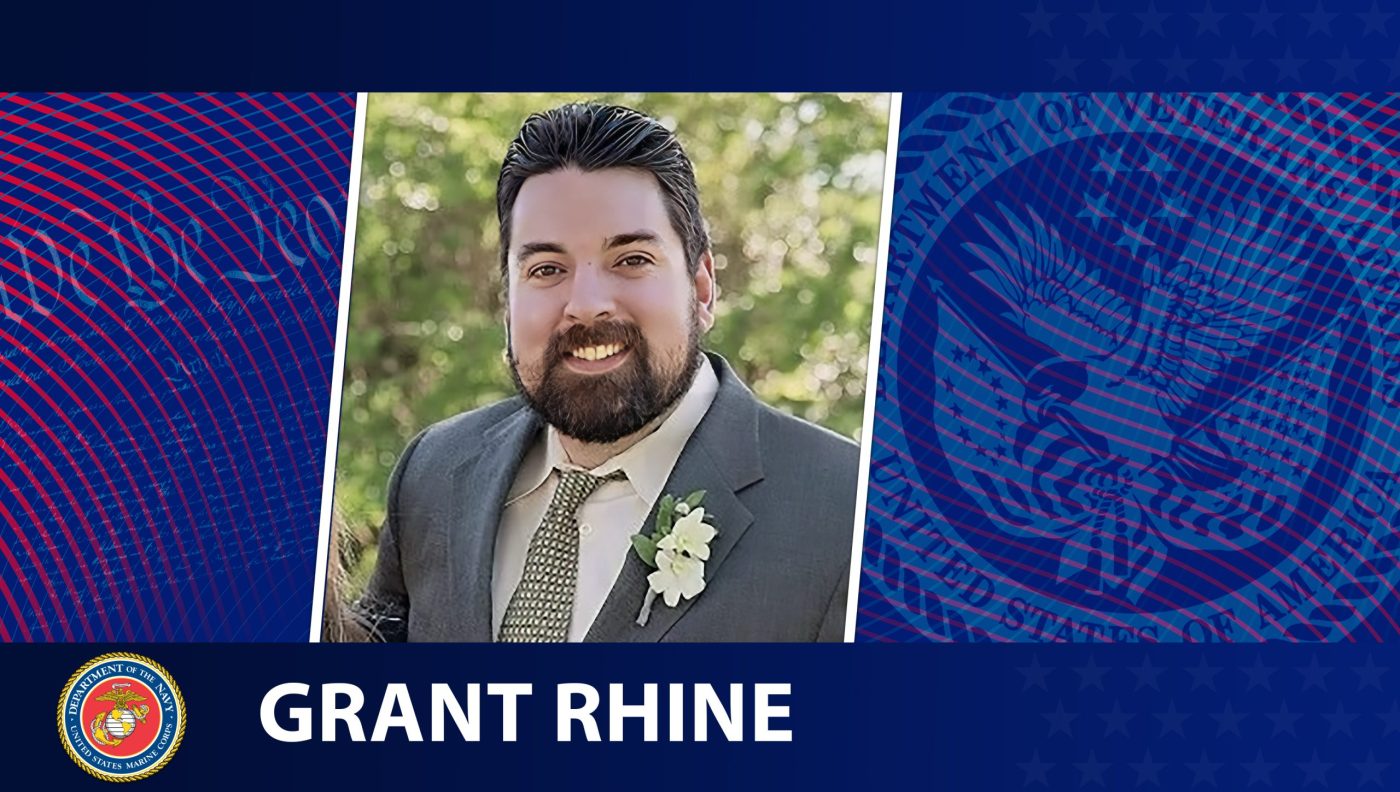Harry Liversedge was born in September 1894 in Volcano, California. He enrolled in the University of California, Berkeley, and, while attending school, participated and won third place in the 1920 Olympic shot put competition. He joined the Marines in 1917, and he was commissioned a year later.
Early in his career, Liversedge served across multiple locations, first in France in 1919, when he was also promoted to first lieutenant. Back in the United States, he briefly served in Quantico, Virginia, before again deploying abroad to join the Second Provisional Marine Brigade in Santo Domingo, Dominican Republic. After a brief return to Virginia and Maryland, Liversedge then served as an aide to the American high commissioner in Haiti.
A proven athlete, Liversedge participated in his second Olympics competition in 1924 while serving at the Naval Academy. He then served in Virginia and California before deploying to China. His athleticism once again aided him when he was tasked with providing boxing training training with the Third Brigade in Tienstin. In Shanghai, he also participated in the International Track and Field Meets, a major track and field competition.
After his service in China, Liversedge returned to Virginia. He then relocated to California for the second time, earning a promotion to the rank of captain and serving as an aide to the commanding general at the Department of the Pacific Headquarters. Liversidge then for the first time served aboard a ship in 1933 when he was assigned to USS California. He continued serving domestically for the next several years, moving between Philadelphia, Pennsylvania; Quantico, Virginia; Spokane, Washington; and San Diego, California.
From its beginning, Liversedge played a significant role in the Marine Corps during World War II. He started by commanding the Second Battalion, Eighth Marines, in American Samoa in January 1942. He continued commanding his fellow servicemen for the remainder of the war, leading the Third Marine Raider Battalion beginning 1942 and the First Marine Raider Regiment beginning March 1943. In that role, he led his unit against Japanese forces and subsequently earned a Navy Cross. Next, he commanded the 28th Marines and led his unit in the Iwo Jima Campaign, commanding his troops for the entire 36-day campaign, which ended with one of the most iconic images of the war.
At the end of the war, Liversedge served briefly in Japan before finally returning home, where he remained for the rest of his career. He served in California as director of the Twelfth Marine Reserve District, as a district marine officer for the Twelfth Naval District and as assistant commander for the 1st Marine Division in Camp Pendleton. In 1948, he earned a promotion to brigadier general, which was his final rank, and continued serving in high-level positions in Guam and California. In 1950, he assumed his final position as director of the Marine Corps Reserve.
Liversedge died in November 1951 at the age of 57.
We honor his service.
Nominate a Veteran
Do you want to light up the face of a special Veteran? Have you been wondering how to tell your Veteran they are special to you? VA’s “Honoring Veterans” social media spotlight is an opportunity to highlight your Veteran and his/her service.
It’s easy to nominate a Veteran. Visit our blog post about nominating to learn how to create the best submission
Writer: Khaled Maalouf
Editors: Cate Manning, Delaney Tracy
Researchers: John Bergstrom
Graphic Designer: Leon Saul
Topics in this story
Link Disclaimer
This page includes links to other websites outside our control and jurisdiction. VA is not responsible for the privacy practices or the content of non-VA Web sites. We encourage you to review the privacy policy or terms and conditions of those sites to fully understand what information is collected and how it is used.
More Stories
This week’s Honoring Veterans Spotlight honors the service of former MLB player and Army Veteran Richard “Dick” Groat, who served from 1953 to 1954 during the Korean War.
This week’s Honoring Veterans Spotlight honors the service of Army Veteran Benjamin F. Wilson, who served during World War II and the Korean War.
This week’s Honoring Veterans Spotlight honors the service of Marine Corps Veteran Grant Rhine, who is now active in the Veteran community Irreverent Warriors.






